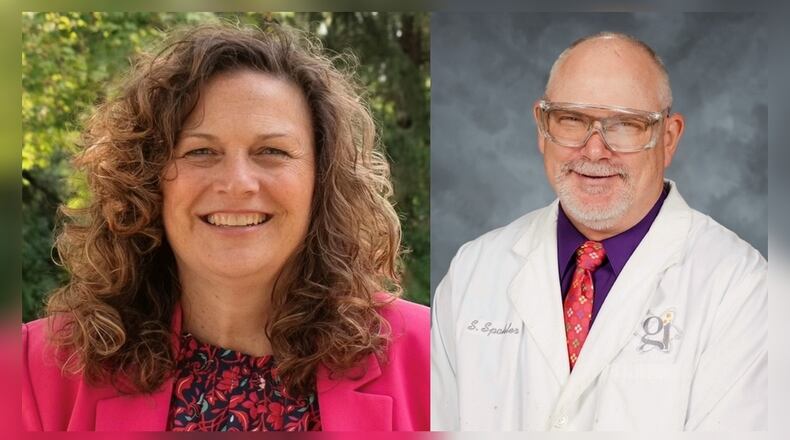The teachers were selected based on their high-quality science instruction and evidence of teaching effectiveness in their local districts. They were interviewed over the summer, and project activities began last month.
“We pour a lot of energy into training new teachers, which is necessary and important, but it’s also critical that we think about how to retain veteran teachers who have a track record of success in the classroom,” said Natasha Johnson, leader of the initiative and assistant professor in the College of Education at the University of Toledo. “This initiative is designed to equip and empower teachers to continue making a difference for their students year after year.”
Sanders, who has been an educator for 25 years, chose to participate because she “believes in staying curious and modeling how to be a life-long learner to my students.”
“My real passion is working with students and serving as a teacher leader/mentor role focusing on pedagogy and curriculum ...” she said.
Spohler, who has been an educator for 33 years, said, as the “old wise one” on the staff, that “it is good to be looked at to guide and help the new and younger staff through the trials and pitfalls of teaching ... I really want to help slow down turnover and mentor the younger teachers of today.”
The teachers will participate in a variety of professional development activities including monthly academic year meetings, summer institutes, virtual book studies, classroom observations, a teacher exchange program and micro-courses. Teachers will also have an opportunity to reflect on their instructional practices and classroom environments through video analysis.
“The goal is to develop science teacher leaders that are equipped to “lead” from their own classrooms. As classroom teachers, they are best positioned to provide necessary training and support to new teachers and other veteran teachers within their local school and/or districts,” Johnson said.
The project will provide Sanders and Spohler with up-to-date resources and best practices to share when mentoring pre-service, new teachers and mid-career teachers. It will allow more networking opportunities with other master teachers, and help apply the knowledge in the classroom. They also serve as teacher leaders with various industry partners within agriculture and material science where they create workshops for science teachers around the nation each summer.
“We are both hoping this fellowship opportunity will enhance our skill sets to encourage other educators to serve on curriculum development committees to foster a greater passion for science and math as our state increases in more opportunities in STEM-related occupations,” Sanders said.
Sanders said the COVID-19 pandemic is a reason for the burnout issues, and that it was like they all went back to their first year of teaching and needed to recalibrate their mindset.
“I would say COVID and the past three years returning from COVID, literally knocked the wind out of our sails trying to get students both emotionally and physically acclimated back to the classroom environment,” she said, explaining that she has seen some strong classroom teachers leave to move into more of an administrative role or leave the profession altogether because of the increasing needs of students and large gaps in cognitive abilities with little resources.
Spohler credits life getting harder and more demanding on teachers, not enough time and COVID for the burnout issues. He said it’s not only time commitments during the school day, but also after-school obligations such as families, sports and theatre rehearsals.
“COVID took a lot of well experienced teachers out of the mix and schools are still rebuilding,” he said.
Johnson said teacher retention is correlated with things such as teacher salary, teacher collaboration, high-quality professional development and teacher effectiveness.
“Basically, our approach is to provide the factors that we know support teachers to reduce the likelihood of teacher turnover,” she said. “The teaching profession can be a very isolating experience, so we hope to create a community of practice to discuss and solve the problems facing today’s classroom teachers.”
The first and second components of the project are teacher and leadership development. A third component of the project is cultural competence, where teachers will discuss best practices, including strategies to create an inclusive classroom, effective communication skills and integrating culturally relevant teaching approaches into the curriculum.
The University of Toledo, in partnership with the Kentucky’s Partnership Institute for Math and Science Education Reform (PIMSER), was awarded funding by the National Science Foundation through the Robert Noyce Teacher Scholarship Program to support this project.
For more information about the project, visit www.utoledonoyce.org.
About the Author


